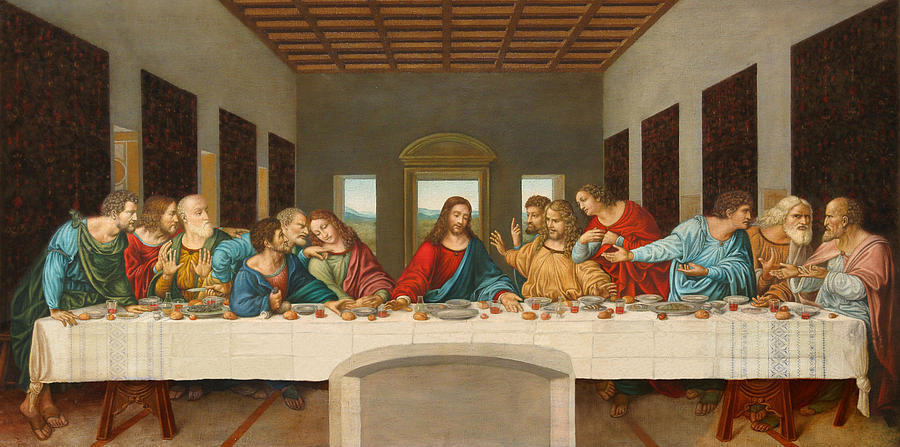|
1 Corinthians 11:23-26 (NABRE) For I received from the Lord what I also handed on to you, that the Lord Jesus, on the night he was handed over, took bread, and, after he had given thanks, broke it and said, “This is my body that is for you. Do this in remembrance of me.” In the same way also the cup, after supper, saying, “This cup is the new covenant in my blood. Do this, as often as you drink it, in remembrance of me.” For as often as you eat this bread and drink the cup, you proclaim the death of the Lord until he comes. I switched Bible translations today. Did you notice? I went with NABRE because I want to highlight one thing in this passage. Most English translations are going to start this out with “on the night he was betrayed”, and our minds immediately go to Judas, who betrayed Jesus on the night of the Last Supper. That’s certainly not a wrong translation, by any means. It highlights which day on which this was occurring, and emphasizing that Jesus was crucified because of man’s betrayal. But using “betrayal” there seems to impose the image of Judas onto the text, when it isn’t necessarily there in the Greek.
The Greek word there is paradidomi, which literally means to be handed over. Certainly that can mean betrayal, as you can be handed over to the authorities. But it doesn’t necessarily have that connotation. For example, in the Spanish Reina Valera translations, it gets rendered as fue entregado, or “was delivered.” I’m not going to get into a quibble about how best to translate it, as I’m far from qualified to go up against Biblical scholars on that one. But I think the language of deliverance or handing over highlights another aspect of this verse. Remember that Paul is admonishing the Corinthians for not giving the Lord’s Supper the reverence it is due. They are allowing social class systems of their lives to define the communal supper. The rich among them arrive already drunk, as they were able to eat and drink all day while the poor had to work. They do not eat together, but instead the rich eat with the rich and the poor with the poor. This is no communal table at all! If we focus on that context, we can see how rendering paradidomi as “handed over” may be beneficial. For who was it, ultimately, who handed Christ over to be crucified? Who was it who sent him? It was the Father! Indeed, this even echoes what Paul writes to the Romans, when he says “He who did not spare his own Son but handed him over for us all” (Romans 8:32). And John the Evangelist, when he says that God so loved the world he gave His only-begotten Son (John 3:16). Paul is emphasizing here the seriousness of the Lord’s Supper. He focuses in on the fact that this is, indeed, the Son who was sent by the Father, who was handed over for our sins. This is no mere meal. That is why his warnings come swiftly afterward. “This is why many among you are ill and infirm, and a considerable number are dying.” Because you are receiving unworthily. You are not approaching the Lord’s Supper with the proper discernment of what it is: the Body and Blood of Christ, the one who was handed over. Tonight, on Maundy Thursday, we remember the Last Supper, the night Jesus was handed over for our sins. I pray that we may all be discerning in our reception of the Holy Eucharist, and that none of us receive unworthily. I pray that we all remember what it is we do, that in joining together in the Lord's Supper we may all be joined together with Christ, as the disciples were. |
ArchivesCategories
All
|

 RSS Feed
RSS Feed